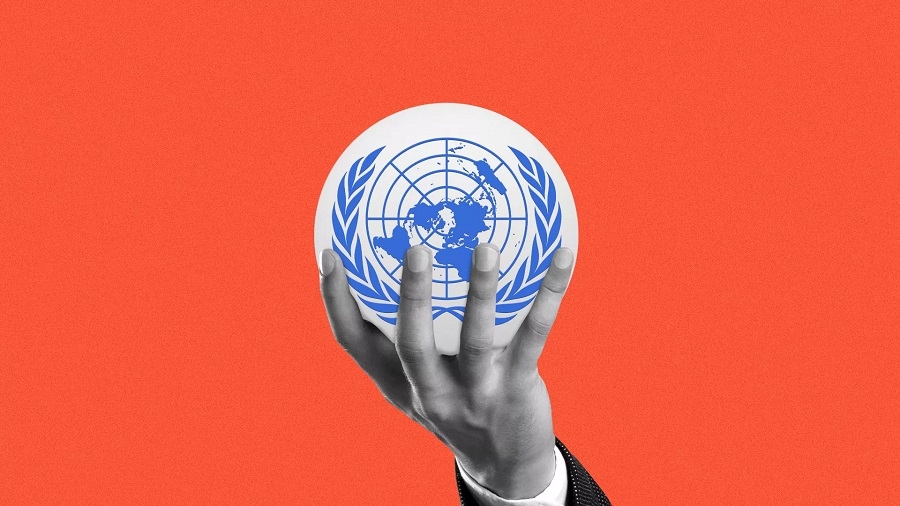Failed Climate Talks
| Date :27-Dec-2019 |

By LALIT SETHI :
Will they try to ward off and curb the climate crisis through financial commitments to help the developing countries to clean up the mess on land, oceans and other water bodies. It is over this that India’s interests have been pushed aside.
INDIA’S concerns have been overlooked at the just ended United Nations Climate Commerce attended by representatives of 197 nations and several non-governmental organisations even as it ended in failure. But a somewhat startling revelation was made in a report circulated. It said that 12,000 extreme weather “events in the past 20 years, since 1999, have killed half a million people. The next round what has been called COP 25 will be held in Glasgow in 2020 in the hope that some ways will be devised to keep increased global warming at bay.
Will they try to ward off and curb the climate crisis through financial commitments to help the developing countries to clean up the mess on land, oceans and other water bodies. It is over this that India’s interests have been pushed aside. Yet the United Nations Secretary-General insisted that he will not give up hope and try to build up a consensus in Glasgow, no matter what it takes to give a start to a somewhat cleaner world. Is it a gross underestimate to say that 12,000 extreme weather events have killed half million people? How have the half million deaths from these extremities been tabulated? Who reports these extreme weather events and who reports the deaths following them?
Are these reported by the 200 odd Governments of the world to the United Nations? Or are other environmental authorities making these calculations? Could they be accepted as truthful? Or do the extreme weather events and half million deaths lack credibility? Every strong tidal wave which lashes the shores, does every tornado, cyclone, tsunami, trembler or earthquake, heavy snow and unprecedented rain havoc mess up cities and countryside and vast stretches of land, rivers, lakes and other water bodies? Andrés Landerretche, coordinator of the COP25 Presidency, was despondent and at the end of the day, he had to throw up his hands in the air, yet his gestures showed that in the year 2020, hope may descend after the Yuletide spirit is over.
A new dawn could not be ruled out in spite of severe winter, snowstorms, sleet, frozen lakes and water bodies in the Occident and Northern Hemisphere. Yet, heat and dust in parts of the Orient and lands below the Equator and Down Under reverberate with volcanoes and blazes singeing even one of the most beauteous of cities like Sydney. Countries have failed to reach consensus on key issues at the end of the Madrid Climate Summit even as talks between Ministers, delegates and negotiators to persuade the world to adapt itself to moderate, if not resolve, the climate crisis, which is blowing up in their faces. Could the world be saved from unprecedented catastrophes now in the making around the globe? Negotiators have been unable to agree on who needs to do what to mitigate the climate emergency and reduce the crisis to somewhat acceptable levels.
Diplomatic jargon ensures that no one is willing to say that the imminent chaos is becoming dangerous and could cause life in large parts of the world to perish, if there is no way out. In spite of the climate action movement growing over the last year, the negotiating process has been lack-lustre. There was one big protest on the final scheduled day of COP25 organised by civil society groups. It even rattled UN security personnel. The protest was led by young adults, but several not-so-young adults were not missing. One of the slogans called for ‘climate reparations’ to be paid by the developed world to the developing world for causing the climate crisis through their emissions.
The impact of this crisis is huge and is being disproportionately felt by developing countries as some of them are more vulnerable and all have limited capacities and infrastructure to deal with extreme weather events. “We will take this fight from the global south to the global north,” said an Indian social activist, Vidya Dinker, who added: “Another protester said that the nations which colonised the world have caused the climate crisis. “Now the same nations are refusing to recognise us our rights so that they can protect their rights to colonise us once again.”
The developed world has continued to refuse to implement its existing commitments and to make any significant further ones that would be in tune with the scale of the climate crisis we are seeing already. A recent report said that almost half a million people have died since 1999 because of more than 12,000 extreme weather events. The fact that the earth has already warmed up by 1.1 º C and future warming is already in the works did not shock the delegates. Thus, the Paris Agreement seeking to ensure that financial commitments made earlier are honoured was brushed aside.
On an issue within Article 6, which is a key factor for India – to carry over Kyoto-Protocol-era carbon credits – there is speculation that developed countries oppose even limited release of funds, on the scope and quantum of the levy to be charged for carbon credit trade. Developed countries are not allowing the levy to be imposed. India has spoken strongly on the failure of the developed world to meet its emission reduction targets under the Kyoto protocol and its climate change finance responsibilities. It has called for a two-year work programme to be devised to identify the gaps and ensure that these are met as heavy losses and damage continue, but there is no desire to make any financial commitments. (IFS)